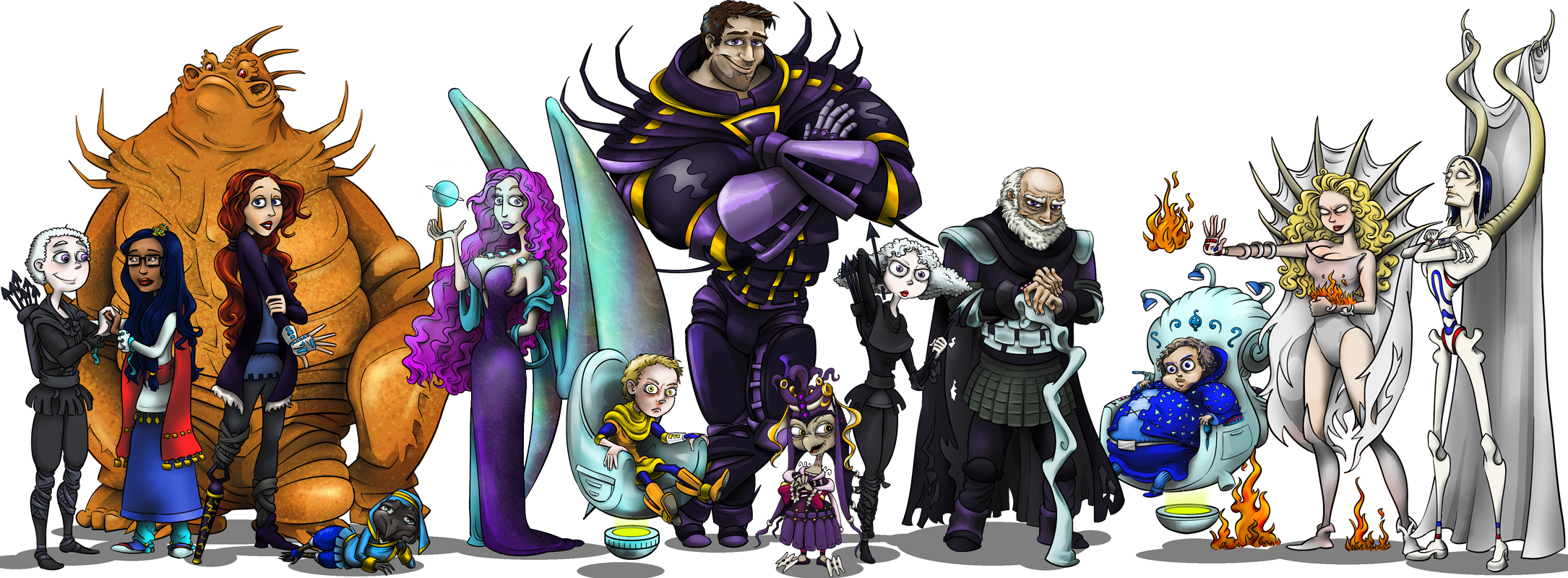There’s a myth going around the online spaces where creatives hang out. That myth is that consumers are all incredibly voracious beasts who just want moar and moar and moar, and that no matter how many thousands of books/films/games are published each day, the consumers can never be satiated. Every reader must be reading 100,000,000,000 words per day. It is therefore every professional creator’s duty to deliver as much content as possible. Anything less and you (as a creator) will be ignored, left behind, and relegated to obscurity forever.
I first began to hear this myth circa 2010. When I pressed one of its propagators for an explanation–“But why? How do you know this is true?”–she responded with insults. If I dared to question her sage advice to rapid release, then I had zero chance to become a bestseller or anyone of note. She didn’t know why. She just knew it was so.
She is mostly right, it turns out.
Most income earning creatives (authors, etc.) stay in the black by hewing to the principle of rapid release. As of 2024, the common professional advice to indie authors who want to earn a full-time living is to produce more than 400,000 words per year. That’s equivalent to four or five novels. Any less than that, and you won’t be able to capitalize frequently enough on Amazon’s new release category. Your brand name will get buried in the nonstop deluge from fellow authors who are also releasing new books. You will not be noticed. (And sure, you can attempt to land a trad pub Big Four sweetheart contract, but everyone knows that’s pie-in-the-sky. Gaining Big Four marketing clout is like winning the Olympics or the lottery.)
The principle of rapid release doesn’t just apply to major retailers like Amazon. It pervades all spaces for creative works, including free fiction hubs like Wattpad and Royal Road. It is not solely a problem created by megacorporations. Indie game developers and indie film makers and indie comics creators and indie musicians are dealing with the same thing, even in their underground free incubators.
And now we have LLMs, aka “generative A.I.” empowering creatives enabling uncreatives to produce even moar content faster. Rapid release is skyrocketing. Rapid release rules all. Rapid release is everywhere, and how dare you question it. Conform or die.
I’m not questioning the fact that rapid release works. Everyone knows that it is, by far, the most effective way for indie creators to gain viable income streams. It clearly is. There is no denying the ever-increasing mountains of proof.
I’m questioning the reasons driving it.
There have always been bookworms who love pulp fiction (I’m one of them), but I don’t believe that’s the key driver in demand here. I think the demand is being artificially inflated by visibility algorithms that favor fresh releases and frequent releases. Consumers would have to dig very deep in order to surface content that’s older than an hour on Amazon, or older than 17 minutes on Royal Road. Consumers are constantly presented with the latest new release. With thousands per day, they can scroll endlessly, so most only see the top ten titles above the fold. Therefore, every author is scrambling to game the visibility algorithm so their work appears on top of the ongoing heap as frequently as possible.
And I question the benefits of rapid release, both to society and to the individual creator.
There is always going to be someone who writes faster and produces more. Is this really the best vector to compete on? Does high volume production make for a healthy lifestyle? Is this how you want to live, long-term? Maybe it is, and that’s fine. But I don’t like the fact that all of the incentives in the publishing industries are aligned towards super high volume rapid content production.
Speaking from the other side, as an avid consumer of fiction … I prefer the epic stories that were decades in the making. There are some pulp fiction rapid release authors I admire and like. But I would hate for that to be all there is. By de-incentivizing in-depth world-building and slow crafting, I think we do a disservice to the future of art in general.
I guess there will always be slow, careful crafters in the writing world and in all other creative industries. Some crazy idiots like me will ignore (or try to ignore) the pressure to write rapidly and to up their word count targets. They’ll plod along and hope someone, anyone, notices their staggering work of creative genius that never shows up in the latest release list on any website.
We’re heading into a dark time in the arts. I don’t want to be a doomer. But.
I’ll keep writing at my own pace. I’ll seek out others who do the same. But I suspect we will all remain underground and we will rarely, if ever, get noticed by mainstream consumers. This is the world we live in.


